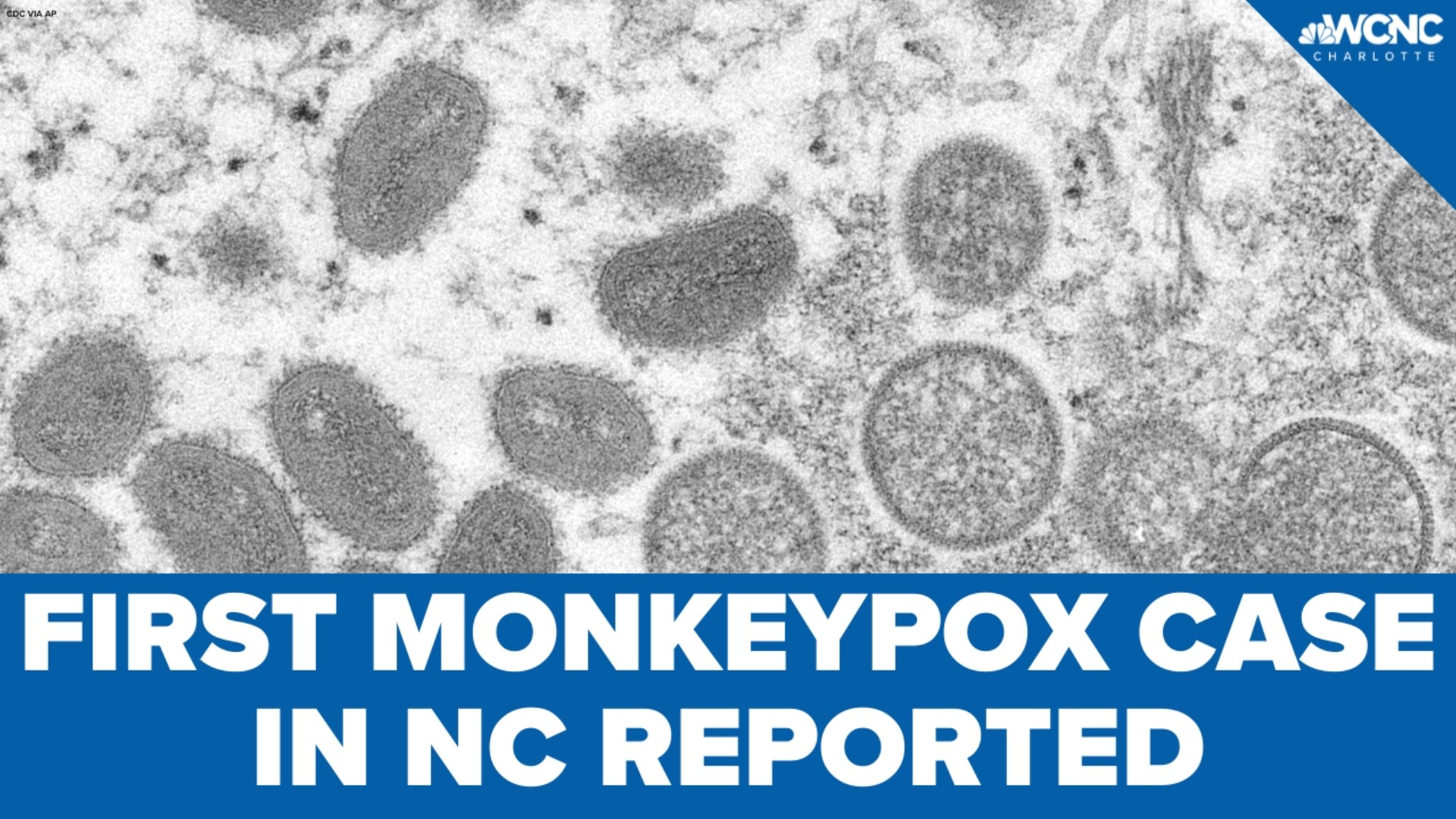RALEIGH, N.C. — North Carolina now has its first case of monkeypox.
The state's Department of Health and Human Services (NCDHHS) announced it confirmed the infection through the State Laboratory of Public Health. While the agency did not disclose where in the state the infected person lives, Atrium Health said Thursday that the case is not from Charlotte.
The patient's health care providers are now reaching out to possible close contacts.
"Though this is the first confirmed case in North Carolina, we know there are likely other cases in the state," Dr. Zack Moore, State Epidemiologist and Epidemiology Section Chief, said. "We are encouraging doctors to consider this in people who have a rash or skin lesion that looks like monkeypox."
What to know about monkeypox
NCDHHS notes that monkeypox is rare, but potentially serious. The virus involves flu-like symptoms, swelling of the lymph nodes, and a rash with bumps initially filled with fluid before scabbing over. Most infections last between two to four weeks and could be initially confused with chickenpox or a sexually-transmitted infection, like herpes or syphilis.
Monkeypox is transmitted from person to person via direct skin contact, having contact with an infectious rash, through contact with body fluids, or through prolonged exposure to respiratory secretions. Health leaders say these kinds of contact typically happen during prolonged face-to-face or intimate physical contact, like kissing, cuddling, or sex.
Anyone can get monkeypox; while most patients in the outbreaks have been men who have sex with men (MSM), health leaders across the world note the disease is not exclusive to the LGBTQ community, reiterating the disease does not discriminate. The World Health Organization did issue public health advice for the MSM group but stressed the need to avoid harmful stigmas suggesting sexual orientation is tied to monkeypox.
How to prevent the spread
Anyone with an unexplained rash, sores, or other symptoms, should talk to a doctor or visit a public health clinic.
Those with a possible infection should also keep the rash covered and avoid sex or physical intimacy with others. Standard household cleaners and detergents are effective at cleaning environmental surfaces and linens.
The Centers for Disease Control & Prevention (CDC) reports there are two vaccines approved in the United States for preventing monkeypox, but both are typically reserved for health care workers in contact with patients.
Dr. Katie Passaretti, an infectious disease physician with Atrium Health, said the vaccines are also usually administered after exposure to prevent a person from becoming sick.
"We would get vaccine through the state from the national stockpile to give to any exposed contacts," Passaretti said.
How monkeypox compares to COVID-19
The CDC still ranks monkeypox as "low" risk to the general U.S. population, since the virus does not spread easily without close contact.
"It is not in any way as easily spread as COVID or many of the infections we're used to, which is a good thing," Passaretti said. "It's not the same situation as COVID."
Since May 2022, more than 3,500 cases have been reported worldwide, with at least 172 cases identified in the United States. The World Health Organization has linked one death to this outbreak.

